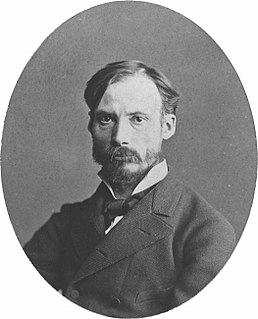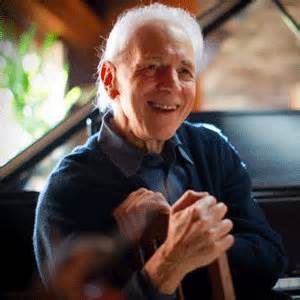A Quote by Pablo Picasso
No doubt, it is useful for an artist to know all the forms of art which have preceded or which accompany his. That is a sign of strength if it is a question of looking for a stimulus or recognizing mistakes he must avoid.
Related Quotes
I think that every artist dreams of renewing the forms which came before, but I think very few can be considered to have achieved that. We are all dwarves standing upon the shoulders of the giants who preceded us, and I think we must never forget that. After all, even iconoclasts only exist with respect to that which they destroy.
Be strong! Don't talk of ghosts and devils. We are the living devils. The sign of life is strength and growth. The sign of death is weakness. Whatever is weak, avoid! It is death. If it is strength, go down into hell and get hold of it! There is salvation only for the brave. Everyone must work out his own salvation.
There is a metaphysical honour in ending the world's absurdity. Conquest or play-acting, multiple loves, absurd revolt are tributes that man pays to his dignity in a campaign in which he is defeated in advance.... War cannot be negated. One must live it or die of it. So it is with the absurd: it is a question of breathing with it, of recognizing its lessons and recovering their flesh. In this regard the absurd joy par excellence is creation. "Art and nothing but art", said Nietzsche, "we have art in order not to die of the truth."
When we play music we describe the echo the tableau of natural forms, their shapes and arrangements, as uncovered by the composer's imagination, which yet must be filtered through our own. There is no other way. And in acknowledging this tableau, this revelation, we must "hesitate", we must doubt, as the composer doubted, for no valid creation can issue unscarred by doubt, by that vast flux of wonder which precedes the construction of being.
There is a crucial distinction to be made between innovation and originality. The second, unlike the first, can never break with what preceded it: to be original, an artist must also belong to the tradition from which he departs. To put it another way, he must violate the expectations of his audience, but he must also, in countless ways, uphold and endorse them.
Art is the process of evoking pity and terror, which is not abstract at all but very human. What the self-styled modern artists are doing is a sort of unemotional pseudointellectual masturbation . . . whereas creative art is more like intercourse, in which the artist must seduce -- render emotional -- his audience, each time.
It is with art as with love: How can a man of the world,with all his distractions, keep the inwardness which an artist must possess if he hopes to attain perfection? That inwardness which the spectator must share if he is to understand the work as the artist wishes and hopes... Believe me, talents are like virtues; either you must love them for their own sake or renounce them altogether. And they are only recognized and rewarded when we have practised them in secret, like a dangerous mystery."
Therein lies the social significance of art: It is constantly at work educating the spirit of the age, conjuring up the forms in which the age is more lacking. The unsatisfied yearning of the artist reaches back to the primordial image in the unconscious, which is best fitted to compensate the inadequacy and one-sidedness of the present. The artist seizes on this image and, in raising it from deepest unconsciousness, he brings it into relation with conscious values, thereby transforming it until it can be accepted by the minds of his contemporaries according to their powers.






































